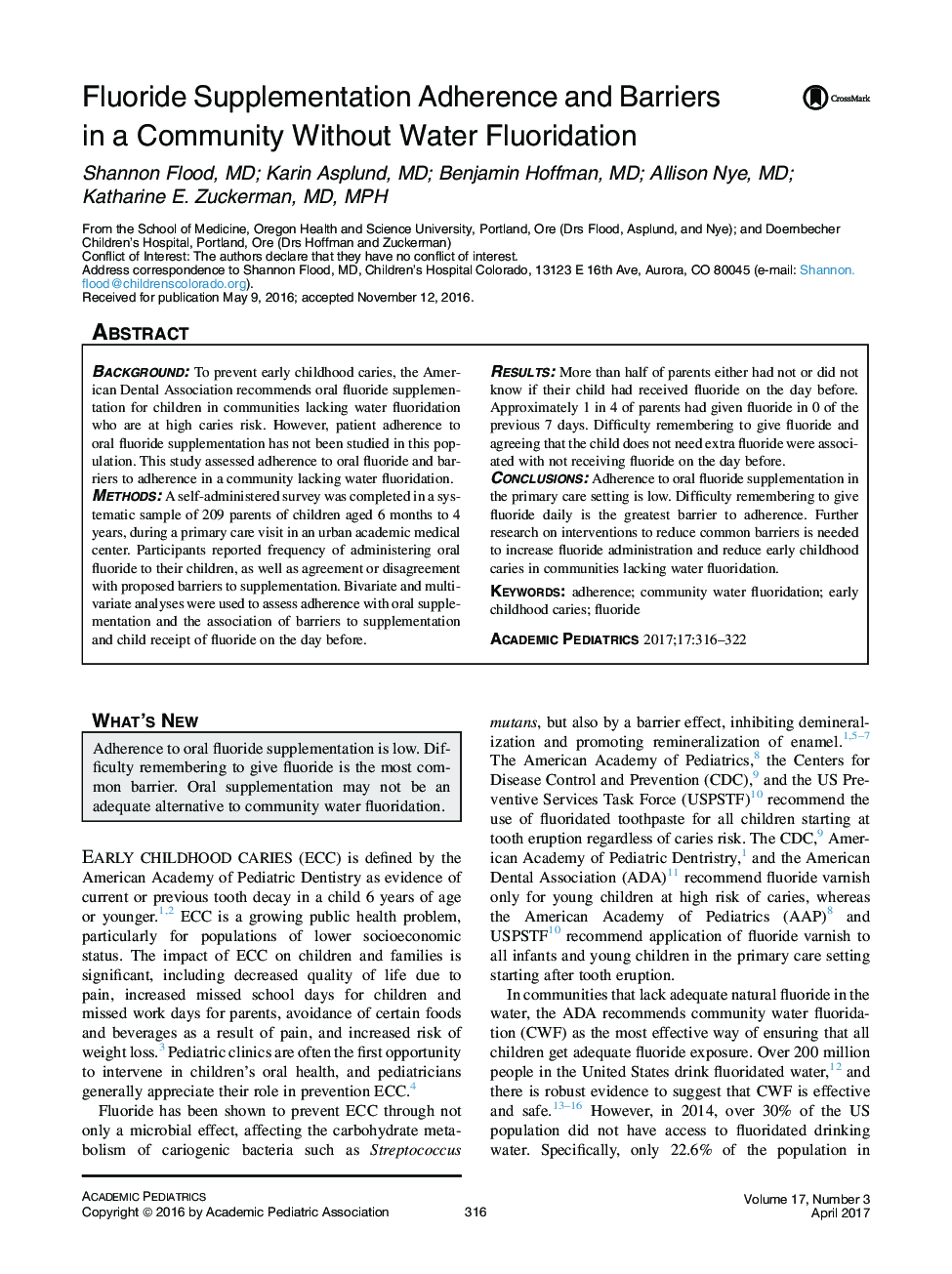| Article ID | Journal | Published Year | Pages | File Type |
|---|---|---|---|---|
| 5717004 | Academic Pediatrics | 2017 | 7 Pages |
BackgroundTo prevent early childhood caries, the American Dental Association recommends oral fluoride supplementation for children in communities lacking water fluoridation who are at high caries risk. However, patient adherence to oral fluoride supplementation has not been studied in this population. This study assessed adherence to oral fluoride and barriers to adherence in a community lacking water fluoridation.MethodsA self-administered survey was completed in a systematic sample of 209 parents of children aged 6 months to 4 years, during a primary care visit in an urban academic medical center. Participants reported frequency of administering oral fluoride to their children, as well as agreement or disagreement with proposed barriers to supplementation. Bivariate and multivariate analyses were used to assess adherence with oral supplementation and the association of barriers to supplementation and child receipt of fluoride on the day before.ResultsMore than half of parents either had not or did not know if their child had received fluoride on the day before. Approximately 1 in 4 of parents had given fluoride in 0 of the previous 7 days. Difficulty remembering to give fluoride and agreeing that the child does not need extra fluoride were associated with not receiving fluoride on the day before.ConclusionsAdherence to oral fluoride supplementation in the primary care setting is low. Difficulty remembering to give fluoride daily is the greatest barrier to adherence. Further research on interventions to reduce common barriers is needed to increase fluoride administration and reduce early childhood caries in communities lacking water fluoridation.
